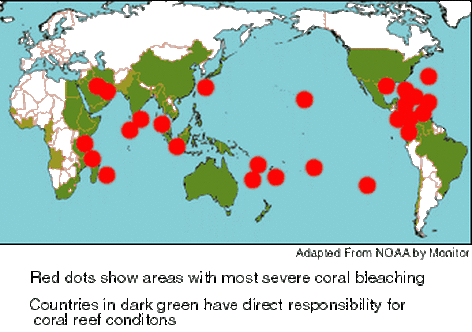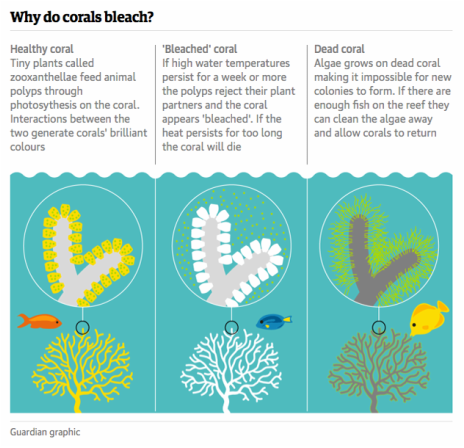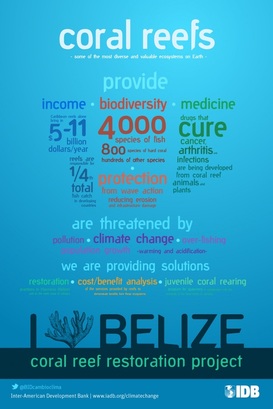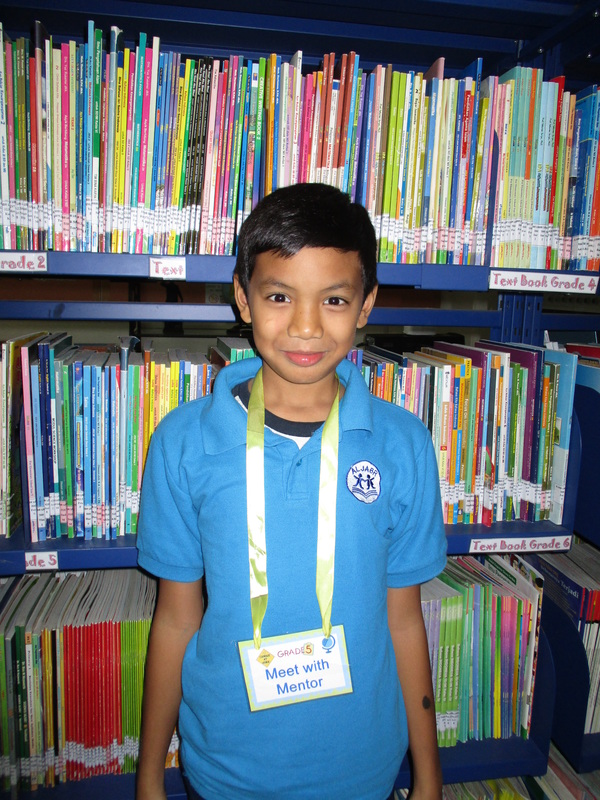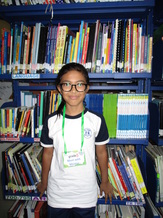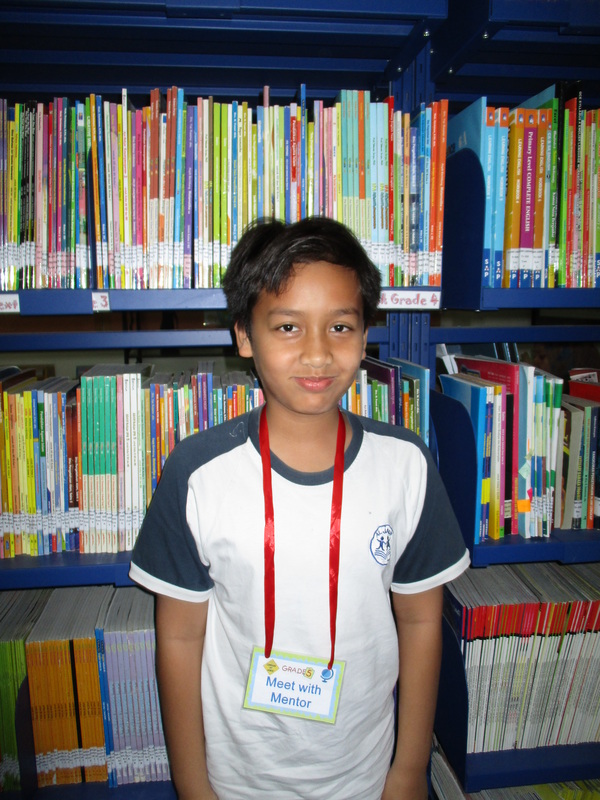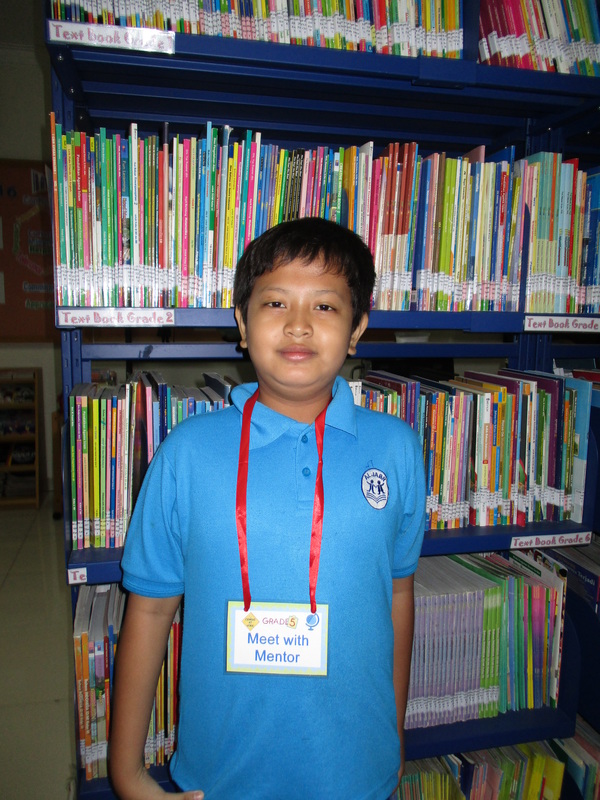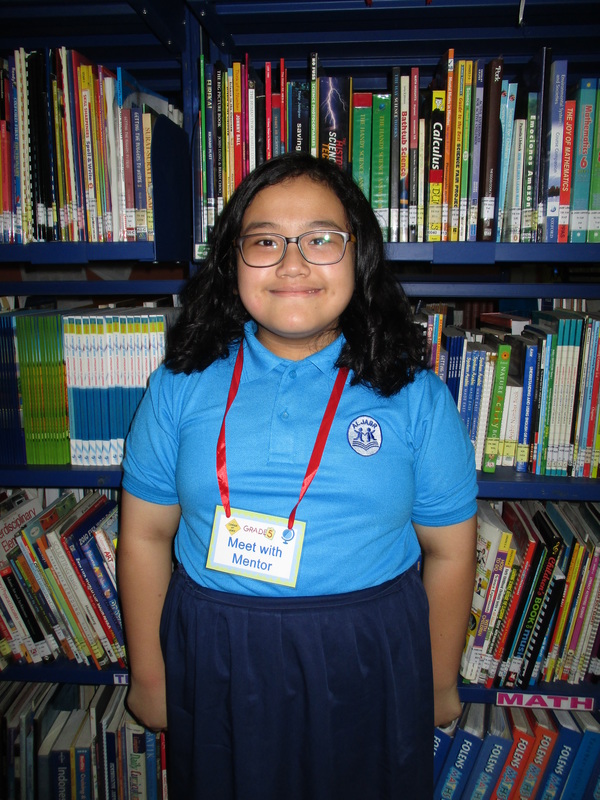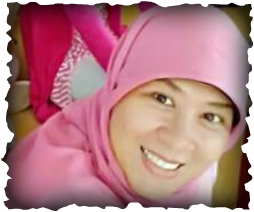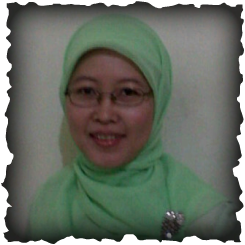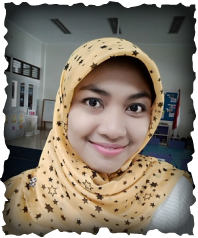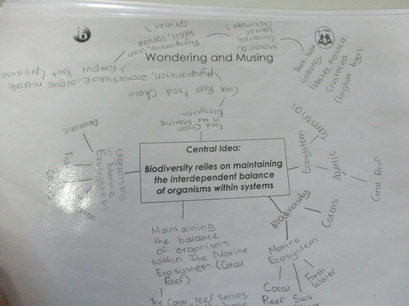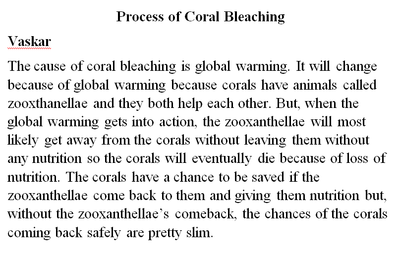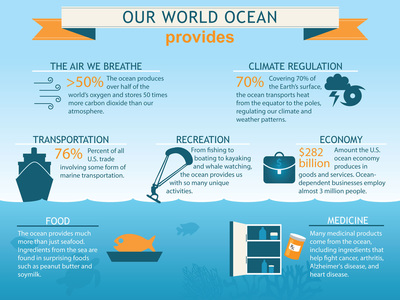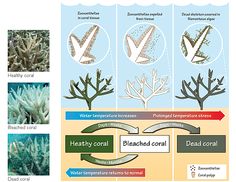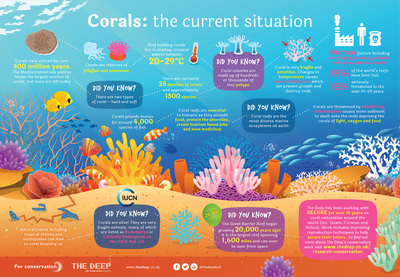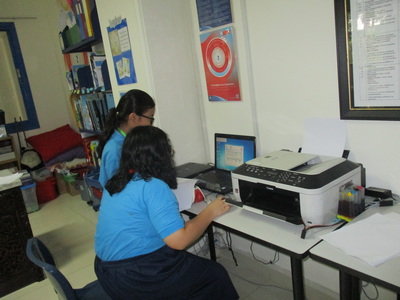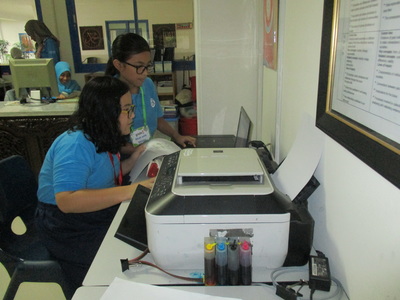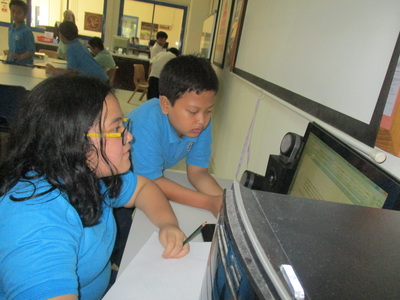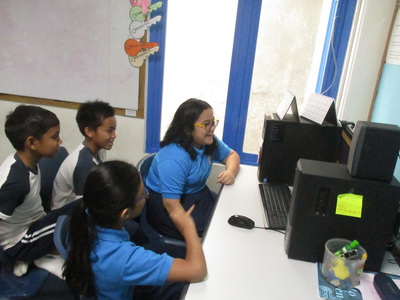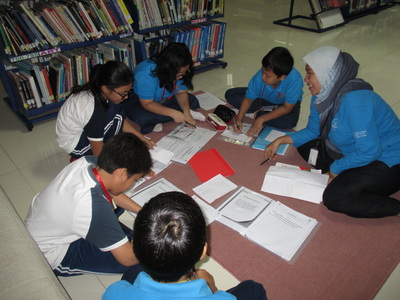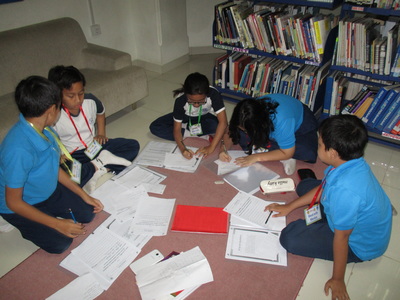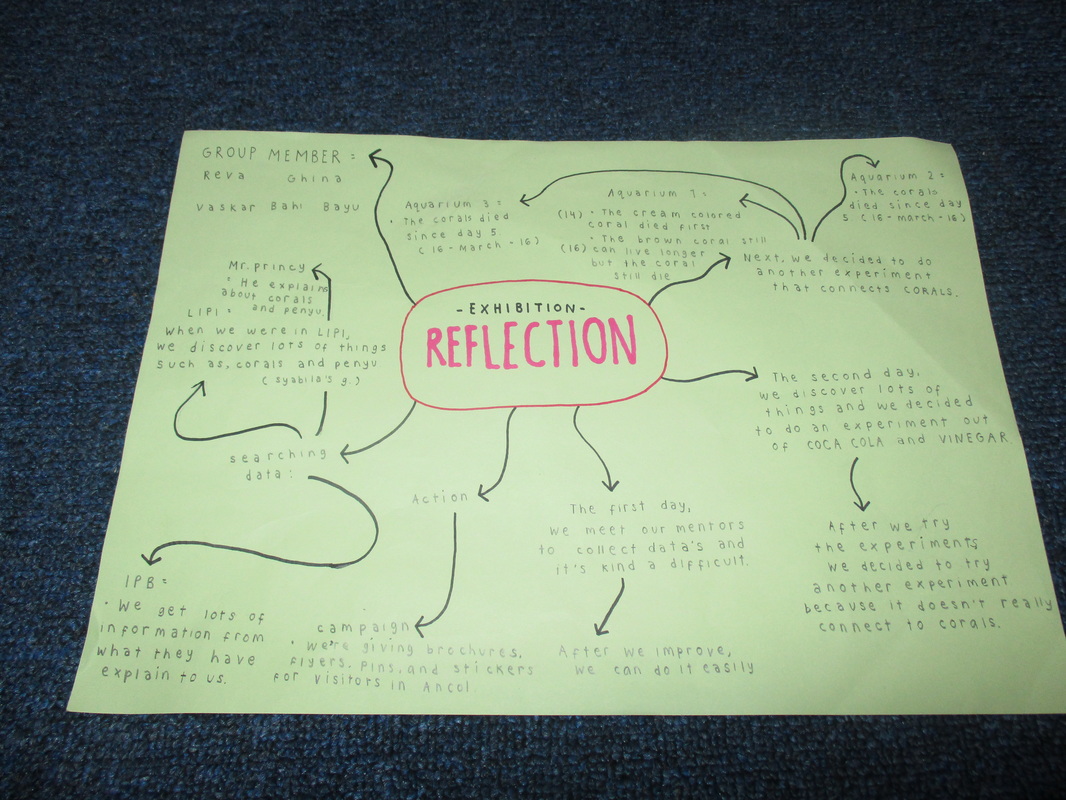|
Corals definition:
cor·al ˈkôrəl,ˈkärəl/ noun plural noun: corals
Origin |
|
|
|
|
|
|
|
The students:
The mentors:
Ms.Rara
Ms. Imel
Ms.ULfah
|
Central Idea:
“Biodiversity relies on maintaining the interdependent balance of organisms within systems”. The Lines of Inquiry: • Ways in which ecosystems, biomes and environments are interdependent • How human interaction with the environment can affect the balance of systems • The consequences of imbalance within ecosystems Science strands: Living things The study of the characteristics, systems and behaviours of humans and other animals, and of plants; the interactions and relationships between and among them, and with their environment. Related concepts: adaptation, animals, biodiversity, biology, classification, conservation, ecosystems, evolution, genetics, growth, habitat, homeostasis, organism, plants. |
Inquiry cycle
1. exploring, wondering and questioningSome students questions about corals:
There are some questions that students wondering. The students started their exhibition project by establishing their roles, their parents' roles, and their mentor's roles. After making a group essential agreement, they set off to do general research on their topic: the marine ecosystem. They had already done a "Wondering and Musing" about their central idea (which can be viewed in the journals above), but they had to focus specifically on their topic. They developed ongoing questions to sustain their research and coordinated with the mentors through weekly meetings. At this stage, we will finish step 6 in our exhibition journals. the students search the information related to the topic "Biodiversity in sea ecosystems" focused on "Coral Bleaching".
Before students proposed their teachers to become their mentors, students should find the articles related to the topic to get to know about students prior knowledge about the coral bleaching.
Your browser does not support viewing this document. Click here to download the document.
|
2. researching and seeking informationAt this step, student start to make plan for research and anything could support the topic. Here are :
1st, we go to LIPI (Lembaga Ilmu Pengetahuan Indonesia) 2nd, we invite Mr.Princy (biologist). 3rd, we go to ITK (Ilmu Teknologi dan Kelautan) laboratory IPB. http://www.pksdmo.lipi.go.id/
|
3. collecting data and reporting finding
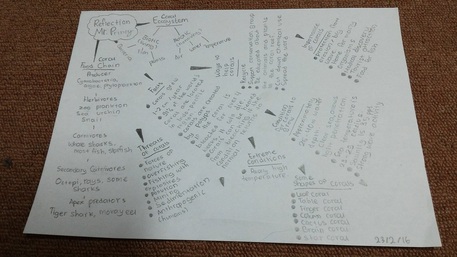
On stage 6&7, students make a field trip reflection about the data that gathered from the resources, the students also prepare for the experiment and actions brainstorming.
the students also find the informations : "We just realized that, infact Corals could be heal, and live again" - Bahi, Vaskar and Bayu. "I got so much knowledge and information from from LIPI, Cikini." -Gina and Reva. |
| ||||||||||||
4. experimenting and playing with the possibilities
Our experiment were about coral bleaching/ we were wondering, why do coral bleach. So we did 2experiments.
there were:
1st experiment was, Soda with Ancol beach sand and vinegar with Ancol beach sand. Another one is white beach sand with vinegar and soda.
2nd experiment was, Corals with 3 different types of sea water. The materials were: boxes of aquarium, sea water from 2 places (Ancol and other place that we bought from shop), water filter, beach sand etc.
the result is:
Soda makes Ancol beach sand frothy alot, so does with vinegar, both makes corals bleaching so fast. as a result soda and vinegar is giving bad impact for our health, especially teeth and body.
there were:
1st experiment was, Soda with Ancol beach sand and vinegar with Ancol beach sand. Another one is white beach sand with vinegar and soda.
2nd experiment was, Corals with 3 different types of sea water. The materials were: boxes of aquarium, sea water from 2 places (Ancol and other place that we bought from shop), water filter, beach sand etc.
the result is:
Soda makes Ancol beach sand frothy alot, so does with vinegar, both makes corals bleaching so fast. as a result soda and vinegar is giving bad impact for our health, especially teeth and body.
5. making connection between previous and current learning
|
After visiting LIPI, have a class discussion of one Biologist Mr. Princey and Coral reefs reservation In IPB Bogor and doing some experiment with the live corals and beach water, it was time to reflect upon the knowledge we built up through research and excursions. From this reflection, the students decided of how to take actions. When deciding the action, we have to develop objectives and goals. After much conversation, we decided that we would have two objectives:
The students decided that the venue of their campaign with be in three locations within Ancol: at the Dermaga Marina,beach Ancol and Ecopark ,North Jakarta. |
|
6. deepening understanding through application of knowledge
|
Alhamdulillah, we did action successfully. We went to Dermaga penyebrangan, beach and Eco park Ancol, North Jakarta. We did campaign to visitors. The students demonstrate, share informations about the corals reef, what is corals bleaching, some definitions, and treatments of how to take care and avoid corals destruction/ corals bleaching. during the campaign, some tourists of local and international interaction and discussion about corals bleaching with the students.
1st location was in Dermaga Ancol. 2nd place was in Ancol Beach. 3rd place was in Ecopark Ancol.
Your browser does not support viewing this document. Click here to download the document.
|
actions reflections /Group COnclussions
|


